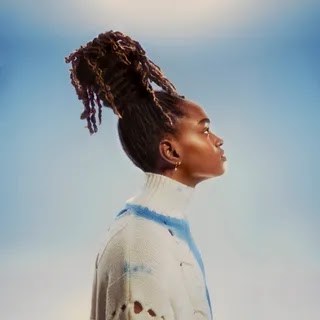Breezy, uplifting, and never forced, the Jamaican reggae star’s debut imbues the ennui and uncertainty of this epoch with much-needed positivity.
Midway through summer 2020, the young Jamaican reggae artist Koffee released her single “Lockdown” and dreamed of life after the pandemic. “Where will we go/When di quarantine ting done and everybody touch road?” she sang over an Afrobeats-tinged riddim, imagining a relationship’s future once she and her boo could finally progress past FaceTime. Its video was similarly optimistic: Koffee at home, relatably, in sweatpants; then Koffee hitting the beach with a crew of friends, blessedly communing out in the world. “Me ah go put you pon lockdown/Put yuh body pon lockdown,” she crooned—pandemic stasis begging to become summer spontaneity. As the Delta variant spread, though, the anticipated end of isolation deflated like a party balloon. Rather than languish in her jammies, Koffee got to work: Gifted, her first album and the follow-up to her Grammy-winning Rapture EP, is by definition a pandemic album, imbuing the ennui and uncertainty of this epoch with a positivity it could surely use.
The relatively short career of Mikayla “Koffee” Simpson is a feel-good story about a rising star: A YouTuber from Spanish Town, Jamaica, discovered at 17 after Usain Bolt posted her tribute to him, “Legend”; collaborating with millennial reggae heroes like Chronixx and Protoje and signing to a major label at 18; winning the Grammy for Best Reggae Album at 19, for a five-song dancehall EP, her first, making her the youngest person and only woman to earn such a distinction. Her accomplishments and accolades are well deserved, but it’s also the kind of uplifting trajectory the music industry loves, and the narrative tends to flatten Koffee’s message. Her joy is rightly celebrated, but she also tells real stories about her life, including critiques of the Jamaican government’s complicity in structural poverty and gun violence (most explicitly on 2019’s crunchy dub “Raggamuffin”). And so Koffee’s COVID-era album, upbeat as it sounds on its face, is not a spiritual turnaround—in March she told Zane Lowe that her writing process was in part a way of encouraging herself out of her low points—and belies that she’s had any cheerier of a pandemic than many of us. She ultimately lands on a gratefulness that reads as hope, simply because to do otherwise doesn’t seem much in her nature.
Gifted veers from the contemporary dancehall of her prior acclaim and into the breezier realm of roots reggae: Low-end edges are burnished in favor of a trebly midtempo that centers guitars and the surety of her voice, a clarion tone about which she once sang, “Inna mi zone/Alto to baritone.” The last two years focused her thoughts inward—as they have for many of us—and Koffee, now a sage 22, is surer in both her talent and what matters most to her. As the title track, “Gifted,” suggests, she’s contemplative about her upbringing in Spanish Town, and the album is full of paeans to her single mother, a Seventh Day Adventist who raised her daughter in the church choir. (“I just try to make [my mom] feel the impact of what she’s done for me,” Koffee told The Gleaner in March.)
In combining traditional influences like acoustic guitars in major keys with the contemporary diaspora—the Afroswing experimentation of the British musician J-Hus, with whom Koffee has collaborated, comes to mind, and they share a producer in Jae5—Koffee bridges history with her Zoomer present. She references Jah and her mom, ’Raris and Rovers, Babylon and Benzes, sometimes in the same stanza. (If there is a person who can describe wearing Prada and Balenciaga without sounding ostentatious, Koffee is it.) The juxtaposition, meted out easily in Koffee’s genial alto, is a meditation on where her life has taken her so far. Several tracks take on the intimate patina of prayer. On “Gifted,” for instance, she invokes an oft-decontextualized Black American spiritual: “Pray to di Father, seh, ‘Kumbaye’/Full up mi plate and bruk my tray, yeah.”
Koffee’s humble wisdom underpins her songwriting, with songs like “Defend” and “Shine” contemplating gun violence and poverty with that same peaceful aspiration, her voice strong and true as she recounts sociopolitical realities and offers herself as a bulwark against them. “Koffee defend them case,” she sings on “Defend,” and on “Shine,” she beseeches the youth to “just stay alive… I’ve got to shine, you’ve got to shine.” The relaxed pace of “West Indies,” with its screwed-down outro, feels like the joyous memory of a party replayed in slow motion, a romantic counterpoint to the slow-grind lovers rock of “Lonely.” There’s a proud and pure undertone to her music, not least because of her inviting vocal timbre, which gives the impression that she’s open-hearted and open-minded too. For the churlish among us, uplifting music can tend to grate rather than inspire, but Koffee hits a satisfying midpoint, free of didacticism and never forced; she’s simply inviting us into her world. It’s sunny there, and I, for one, could use it.



0 comments:
Post a Comment